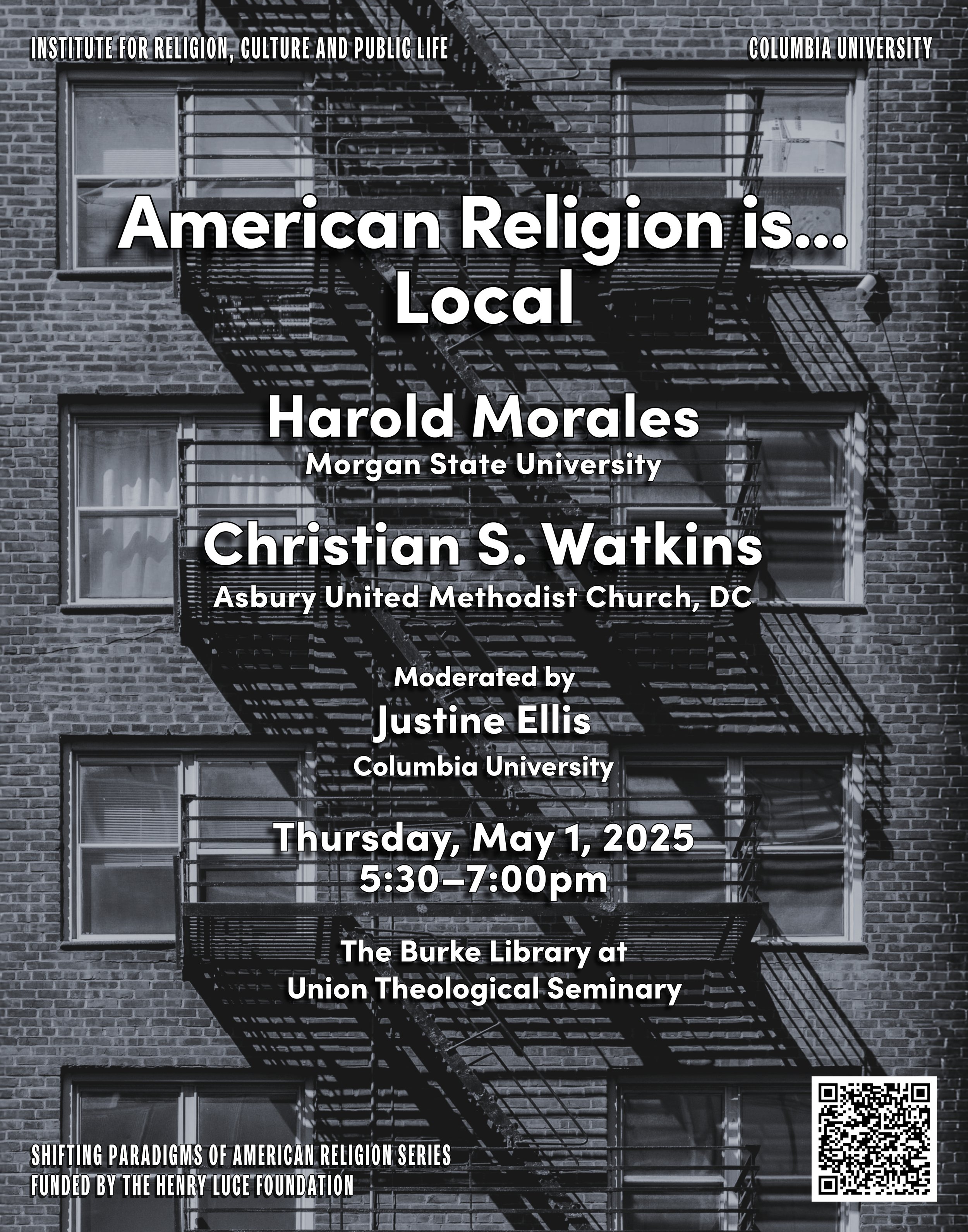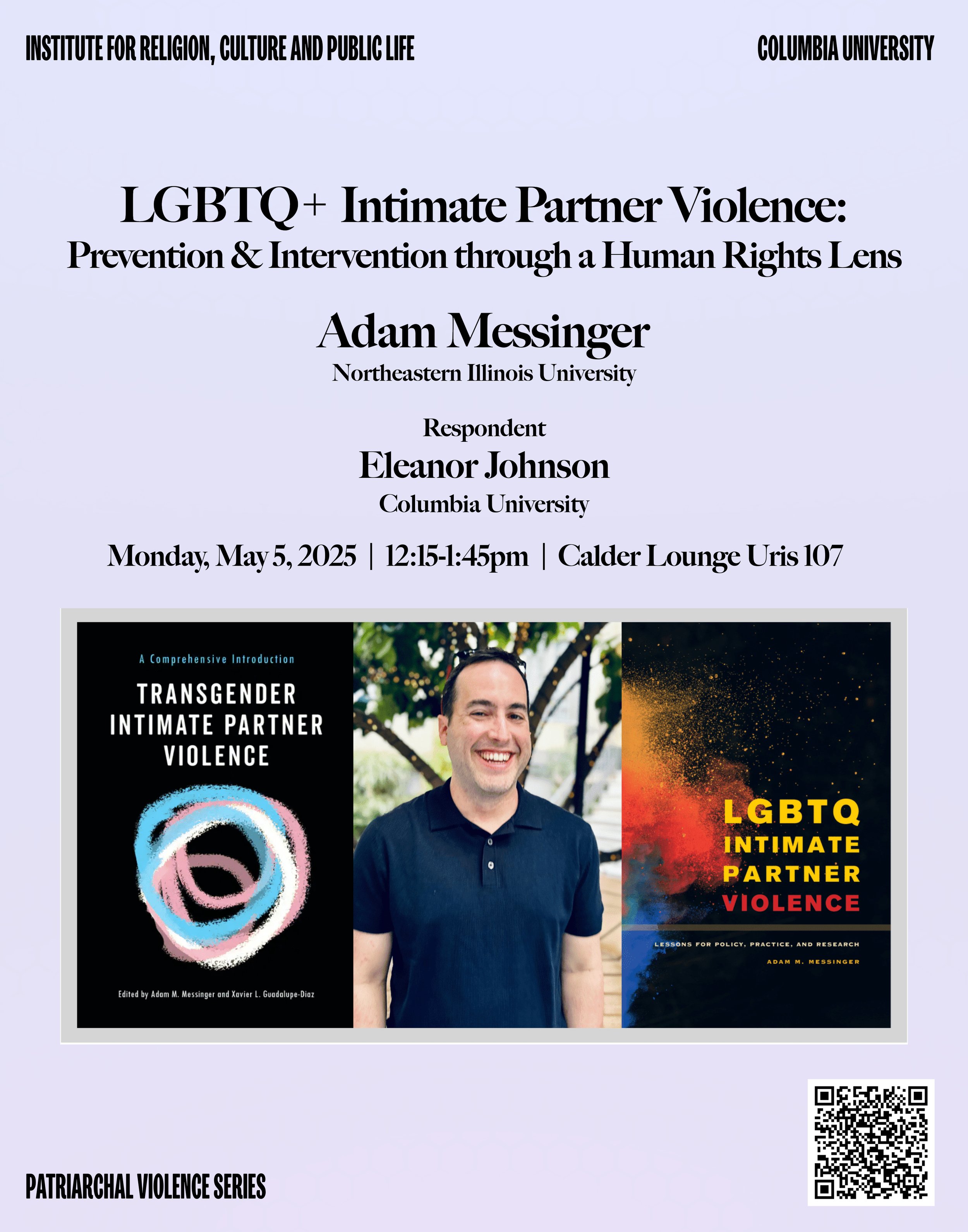Events
Upcoming Events
From competing claims over authenticity to solidarities forged among neighbors, the notion of “the local” has long been a site of contestation, collaboration, and frankly, confusion. In a time of increasing boundary drawing, it is more urgent than ever to consider what we mean, enable, and foreclose when using the term local in relation to religion. This gathering brings together participants to consider the infrastructures—the relationships and resources—that shape local religious forms and engagement with communities in our own neighborhoods. Join IRCPL for a conversation with scholars and policy practitioners about building community based knowledge, and equitable and effective partnerships.
In our current moment in the United States, the human rights of lesbian, gay, bisexual, transgender, and queer (LGBTQ+) people are under threat. For LGBTQ+ survivors of relationship abuse or “intimate partner violence” (IPV), the erosion of human rights is unfortunately linked to IPV prevalence and dynamics, as well as to barriers to safety. You are invited to a talk on these important issues by researcher Dr. Adam Messinger, author of LGBTQ Intimate Partner Violence: Lessons for Policy, Practice, & Research (2017, UC Press) and co-editor of Transgender Intimate Partner Violence: A Comprehensive Introduction (2020, NYU Press). Come learn how, together, we can build a more inclusive, compassionate future for trans and queer survivors of abuse


